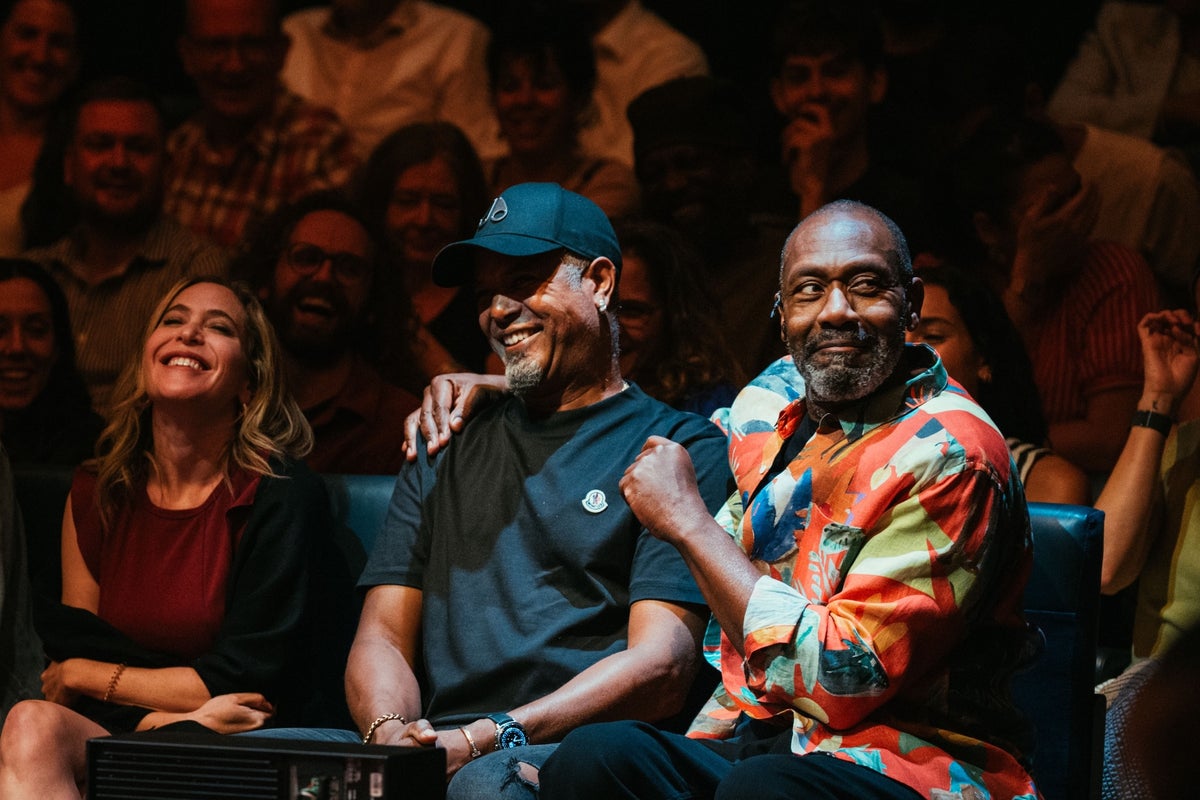
Now we call it gratitude journaling. But in the colloquial one-man play Every Brilliant Thing, the narrator simply calls his version of the New Age practice “a list of all the things worth living for”. To cheer up his mother after her suicide attempt, he starts writing down things like: “Ice cream”; “Staying up past your bedtime and being allowed to watch TV”; “People falling over”. As he gets older – and with the help of the audience – the list grows.
Duncan Macmillan’s heartfelt off-the-cuff story about depression has become a global hit since its debut at the Edinburgh Fringe 11 years ago, having been performed in over 80 countries. This year, for the first time, it is landing in the West End at Soho Place, with the solo role played by Lenny Henry. The baton will later be passed to Ambika Mod, Sue Perkins, Minnie Driver, and original star and co-author Johnny Donahoe.
For a play about suicide, it’s surprisingly light in tone, thanks in large part to Henry’s genuine exuberance about the role. The appeal of the format lies in its quick shifts between the narrator’s life story and the evolving list he adds to over the years. Many of the entries, read aloud by audience members, are charming and relatable, often met with murmurs of agreement from the crowd. (Have you, for instance, ever sat on a train, thought it had started moving, only to realise it was the train next to you? And in that moment, laughed at how fallible our tools of perception are? Me too.) Altogether, it feels like a safe, welcoming, almost family-friendly (for ages 12 and up) space to explore a serious subject with humour.
At points, Henry’s very specific star power threatens to overpower the show. He constantly dances between his everyman narrator role and the fact that he is one of the UK’s most likeable and recognisable comedians, making participating audience members giggly and awkward, more so than the British public ordinarily would be at the best of times. Still, it’s touching to see the way we laugh at those who get roped into his schemes to play certain characters, and then falter when something in their improvised responses turns out to be wonderfully sad, human, imperfect. Such is life, Every Brilliant Thing means to say.
When the play was first staged over a decade ago – and the story itself is over 20 years old – it must have seemed like a potent tool to talk about suicide and mental health. In 2025, it’s aggressively warm but something doesn’t quite land. We’ve lived through the “it’s time to talk” era. We’ve watched the way that mental health awareness was co-opted by brands, and pain became a plethora of buzzwords.
Despite what the play insists, we do know why people in our sick society die by suicide; it’s less of a mystery than ever. At one point, Henry’s narrator says that he has one message for anyone considering suicide: “Don’t do it.” The culture has shifted so much in the last decade that you can well imagine a Gillette/Barclays Instagram ad saying the same a few years ago. I suspect older generations, who didn’t grow up talking about mental health online from the moment they got an iPhone in their prepubescent paw, might glaze over less at this.
The play doesn’t explore what it was like for the suicidal mother in question – or, really, what it was like for the narrator to grow up with that mother. How did he struggle? What impact exactly did it have on his relationships? From the character to the plot, we follow a bittersweet life painted in very broad brush strokes.
Every Brilliant Thing is, in its totality, endearing, but today risks feeling pathologically non-specific, like an Ed Sheeran song about heartbreak or a straight-to-Netflix movie about being alive. Maybe there’s something positive in the fact that these pieces of culture exist, that we can say, no matter how cliche, there’s something universal being pointed at here. I had a lump in my throat for much of the runtime, despite myself. It was a brilliant thing to feel, something to add to my list.
If you are experiencing feelings of distress, or are struggling to cope, you can speak to the Samaritans, in confidence, on 116 123 (UK and ROI), email jo@samaritans.org, or visit the Samaritans website to find details of your nearest branch.
If you are based in the USA, and you or someone you know needs mental health assistance right now, call the National Suicide Prevention Helpline on 1-800-273-TALK (8255). This is a free, confidential crisis hotline that is available to everyone 24 hours a day, seven days a week.
If you are in another country, you can go to befrienders.org to find a helpline near you.
At Soho Place until 8 November; tickets here







